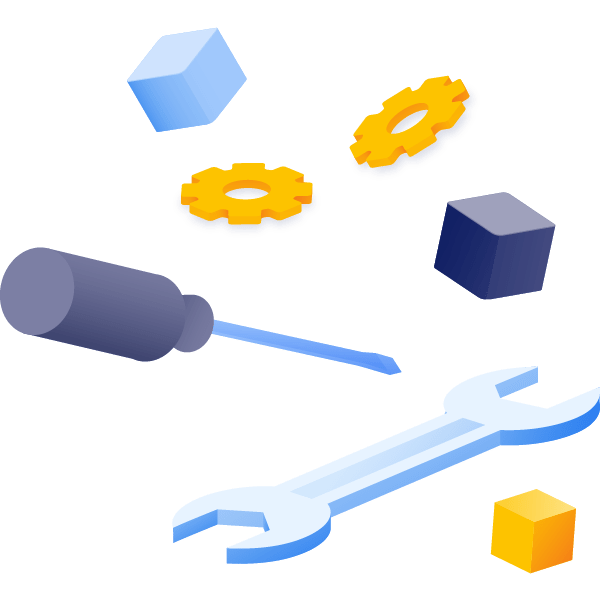VIP Syllabus
Research and Development Context
Students earn academic credit for their participation in design/discovery efforts that assist faculty and graduate students with research and development issues in their areas of expertise.
VIP Model | Benefits | Grading | Peer Review | Meetings

The VIP Model strives to improve higher education by
- Bringing together the institution’s research and education missions
- Breaking down barriers between disciplines
- Extending projects beyond the limits of an academic term

Multidisciplinary
Drawing students from all disciplines on campus
Vertically-Integrated
Maintaining a mix of freshman through PhD students

Long-Term
Each undergrad student may participate for up to four years and each grad student for the duration of their graduate career.
Continuity, technical depth, and disciplinary breadth
Multidisciplinary Scope
Provide the time and context necessary for students to learn and practice many different professional skills, make substantial technical contributions to the project, and experience many different roles on a large, multidisciplinary design/discovery team.
Mentoring Students
Support long-term interaction between the graduate and undergraduate students on the team. The graduate students mentor the undergraduates as they work on the design/discovery projects embedded in the graduate students’ research.
Benefit to Faculty
Enable the completion of large-scale design/discovery projects that are of significant benefit to faculty members’ research programs.

Grading
The premise of VIP is teams working on projects. Much like a real-world engineering team, individual members work on different aspects of the project. Team members range from freshman through graduate students, from first-time participants to students who have been involved for four or more semesters. Some students take the course for one credit, and others take it for two credits.
Your grade is based on three areas, along with three requirements. Although each student may work on different areas and contribute differently, you must show achievements in all three areas below.

Documentation and records (33%)
a. Design Notebook
b. Wiki/blog documentation if used by team
c. Code contributions (via github) if used by team

Personal accomplishments and contributions to your team’s goals (33%)
a. Quizzes, learning modules, essays, reports required by your adviser(s);
b. Engagement in project;
c. Pursuit of knowledge necessary for project;
d. Contributions to the technical progress of the team;
e. For more experienced members of the team, contributions to the management of the project may be expected.

Teamwork and interaction (33%)
a. On-time attendance in meetings
b. Actively contributes to overall team goals
c. Coordinates activities with other team members
d. Assists other team members
e. Team Presentation(s)
f. Peer Evaluations

As part of the assessment, each student is required to: a. Maintain a design notebook. Here is an example of a top-notch notebook.
b. Complete the mid-term peer evaluation. This is a web-based form, and links are available at https://vip.udel.edu. Failure to complete the peer evaluation will result in a full letter grade deduction. Late submissions are not accepted.
c. Complete the final peer evaluation, which will be available for one week before finals. Failure to complete the peer evaluation will result in a full letter grade deduction. Late submissions are not accepted.
Academic Honesty
The main principle in VIP academic honesty is that you will not present someone else’s work as your own. Tests and specific assignments (homework, lab assignments, etc) must be your own work. For other work you are encouraged to consult whatever sources are helpful in learning and understanding the issues associated with the material, but you should always provide appropriate references and citations where such material is included in your design notebook, programming code, presentations, etc.
Additionally, to provide a good working environment for all students, you’re expected to adhere to rules given here, posted, or disseminated in class. Academic Honesty is taken seriously and failure to follow these principles will result in disciplinary actions as given in the Student Handbook.
Peer Review
An important component of the VIP team experience is peer-evaluation. Students evaluate classmates with whom they work, with one evaluation at midterms and one at the end of each semester. Only instructors can view completed evaluations, and they use them in monitoring student progress. Students can only submit peer evaluations during active evaluation periods. Instructors can access evaluations at any time.
Details on VIP design notebooks
BENEFITS
They create documentation for future teammates. Since these are multi-year multi-disciplinary teams which are building brand-new products we can’t have people creating things that only they understand. These notebooks give us the ability to understand your thought process when you build your new products.
They provide an intellectual property record. It is likely that these projects will spawn real businesses and products and these notebooks help keep the record straight on individual contributions to the business.
They give you interview fodder. At other institutions these notebooks have been the topic of whole interviews that land the student a job. It shows that you did real interesting work and that you will be reliable and consistent in your future roles. These notebooks give you great habits.
They give us something meaningful to evaluate. Since the projects are new ideas which might be riddled with failures we can see your efforts and thoughts even if the deliverables aren’t done.
The main rule: IF IT ISN’T IN THE NOTEBOOK YOU DIDN’T DO IT.
NOTEBOOK ADVICE
- DON’T remove or skip pages in the notebook.
- DO doodle, brainstorm, work out related ideas in your notebook.
- DO focus on what YOU personally accomplished, thought about, experimented with.
- If you staple pages in, do so in a way that allows others to easily unfold and see your work.
RESOURCES
We have a Slack channel at vipud.slack.com please join using your udel account. Some teams run their own slack channels, but we occasionally post announcements in the #general channel of vipud.
We also have private GitHub repos, ask your team leader for access if you need it, otherwise direct message Andy Novocin for access if that applies to your team.
GPU servers are available if your team needs heavy computational power, talk to your team lead about getting access.
Subteam Meetings
It is very likely that you will have a smaller team of 3-4 students that you work closely with. It will be your responsibility to meet regularly outside of classroom hours.
There are several places on campus where you can meet your subteams including the various maker spaces around campus. The Evans iSuites collaboration hub is ideal for VIP subteams.
office hours
M-F: 8am - 3:30pm
Address
University of Delaware
Phone
(302)-831-4997
